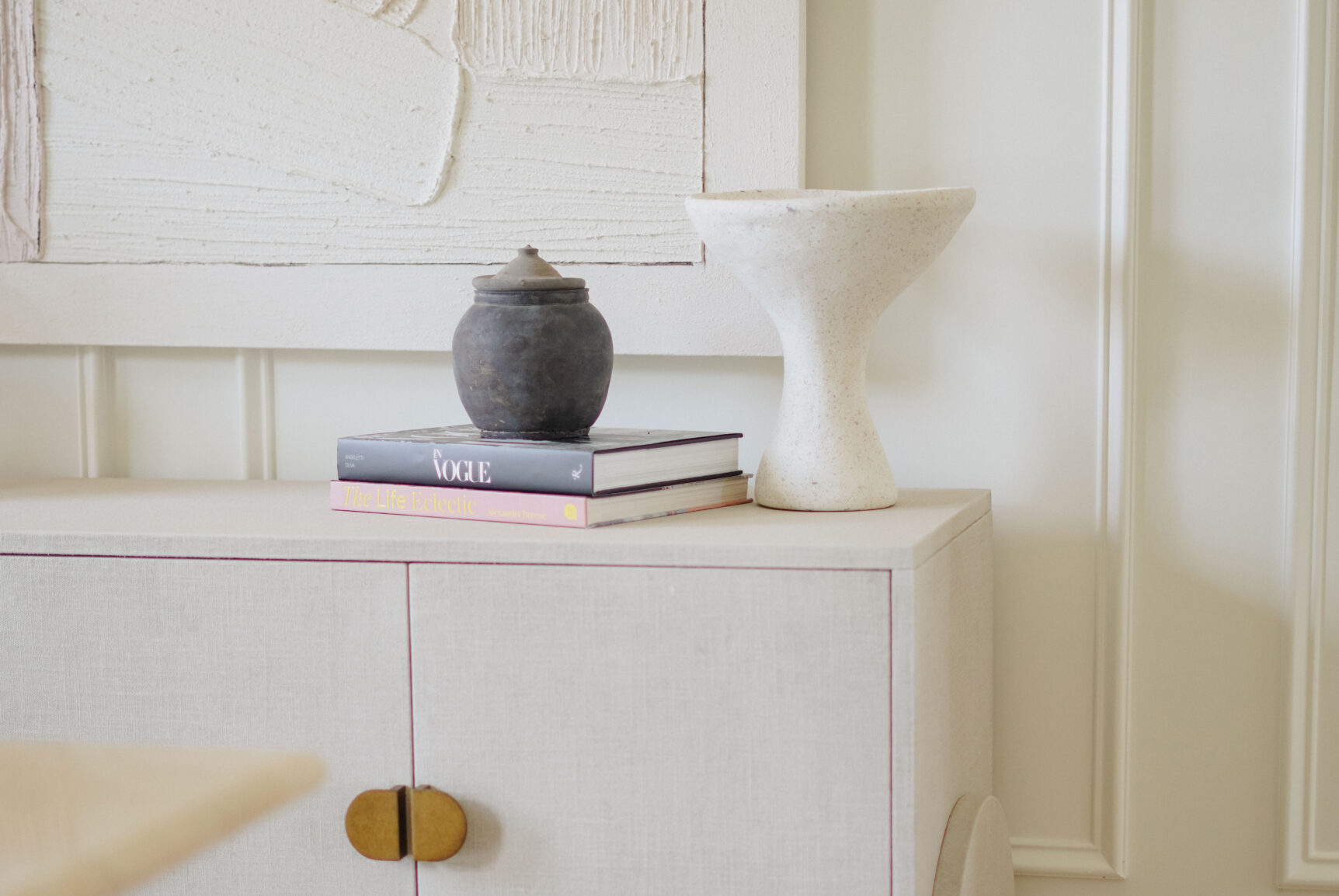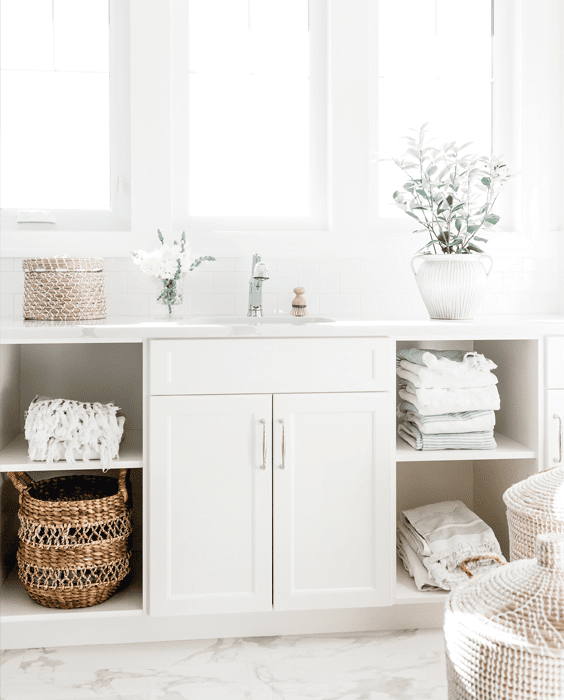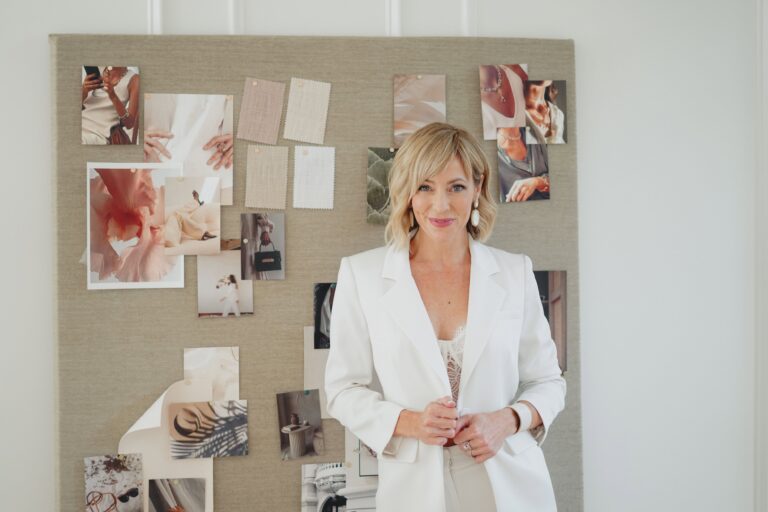The powerful art of spring cleaning: When you declutter your life, you declutter your soul.
Ah, spring. That glorious time of year when everything feels fresh and green, the flowers are blooming, and we all get inspired to clean house.
I’m smiling because I can hear some of you now. “Wait a minute, Tonya. Maybe YOU get inspired to clean house. Spring? Yes! Spring cleaning? No, thanks … ”
But, what if I told you that through the practice of decluttering your physical space, you can also declutter your soul?
It may come as a surprise at first, but if you really think about it, cleaning, and specifically decluttering, can be a powerful spiritual practice in your life.
In a UCLA study conducted by Darby E. Saxbe and Rena Repetti called, No Place Like Home: Home Tours Correlate With Daily Patterns of Mood and Cortisol, it was determined that how a woman describes her home directly correlates to her cortisol levels.
If the subjects considered their homes cluttered and disorganized, they were seen to have higher rates of depression and unhealthy levels of cortisol.
So, we know what needs to be done, but the question becomes: how?
How do we muster up the energy or the time?
How can we effectively declutter our lives, so that we may also declutter our souls?
How can we get up the courage?
Courage? It’s just spring cleaning; isn’t it …?
Gathering the courage to begin decluttering.
It can be hard to roll up those sleeves and just get to it. But it might be about more than just the work.
We’ve all got them:
- That box of old photos we’ve been saying we’ll organize when we “get around to it.”
- That closet full of clothes not worn in years, but we just know we’ll “get into those jeans again someday.”
- The junk drawer in the kitchen where everything inevitably ends up because “I’ll know where to find this when I need it.” And yet, somehow we never do.
- That stack of business cards that you’re hanging on to- just in case.
Now, we may think that we are just avoiding the work itself, but in reality, we are often avoiding the emotions that are connected to the work.
There is so much healing to be had, and freedom to be discovered when we dig deep and find the courage within ourselves to actually begin the hard task of decluttering.
We may not want to tackle our disorganized closet because we know there is a slew of memories and maybe also feelings in there; some good, and some bad, too.
Maybe that pair of heels that you haven’t worn in years will conjure up memories of a lovely vacation you once had, leaving you feeling a bit nostalgic. Or, in the other direction, there’s that terrible blind date that catapulted you into a state of despair and denial about your love life.
What if getting rid of that summer dress you wore once, ten years ago, leaves you feeling sad? Because, gosh it’s pretty, but to be honest, fuchsia-pink flowers really aren’t your style today, and also, it just doesn’t fit anymore.
Or, perhaps you need to get to work on the kitchen pantry, but don’t dare to venture there because of those deep feelings of defeat, shame, or fear about your weight and your health.
I like to think of these kinds of cleaning projects as a sort of work meditation. They cleanse my space while at the same time cleansing my soul.
No matter how big a job it may be (emotionally or logistically), I think if you dig deep you’ll find that you do have the courage to make it happen.
You can acknowledge the emotions, face them head-on, and allow them to flow through you as you work up a sweat and work out your feelings.
Decluttering your physical space will also create more space in your heart, your mind, and your soul.
Start small & choose your own path.
No matter how big the decluttering project may be, allow yourself to start small.
Five to 10 minutes is perfect. You can use a timer and simply promise yourself that you will work continuously and stop when your timer sounds. If we give ourselves a break and take it little by little, the huge task of decluttering can be managed more easily.
Starting small is also a great way to ease into the amount of emotional upheaval that may come about while decluttering.
A good way to start decluttering is to tackle the hard projects first. Don’t start where it’s easy, start in a place that will provide the most relief to your psyche.
When you have identified the area that’s giving you the most grief, you can arrive at a healthy place that much faster.
Alternatively, you could also begin in an area that’s the most exciting to you.
You may be itching to clean out that spare bedroom and create (and decorate!) the dream office that’s going to uplevel your productivity and give your professional morale a much-needed boost.
Maybe you’ve been dreaming of turning it into a yoga and meditation room- your own personal sanctuary.
Perhaps crafting is your ride, and you’re really looking forward to finally having a space for all your materials and creativity.
Starting off with a cleaning project that’s also going to deliver big rewards will have the added benefit of triggering a nice little hit of dopamine, thereby inspiring you to keep going.
In his book Atomic Habits, James Clear says, “When dopamine rises, so does our motivation to act … It is the anticipation of a reward—not the fulfillment of it—that gets us to take action.”
Use the 4-box method for decluttering during spring cleaning.
While decluttering your space, you may have a tough time determining what to do with everything. Try setting up four cardboard boxes, one for each group: Keep, Give away, Relocate, and Trash.
Before you begin, give thoughtful consideration to what each of these things actually means.
- Keep: I need this and use it often. It’s useful and/or it gives me joy.
- Give away: I have not used this recently, but it is still in good condition and someone else could benefit from having it. When I give this away, it will bring me happiness to know that someone else could put it to good use.
- Relocate: I am being honest when I say I still need this and have used it recently. However, it doesn’t belong here and needs to be stored away or returned to its appropriate place.
- Trash: I have not used this recently and it is in no condition to be given away. It may be old, broken, or simply a part of my personal story, but it does need to be put to rest and released.
When you are 100% honest with yourself, you will notice how quickly and easily it will be to declutter.
It’s only when we lie to ourselves about the necessity for material things that we begin to hoard and make unhealthy decisions about our space and our belongings.
Ask yourself what you truly want.
During the decluttering process, you will notice how fresh, new energy starts to build all around you.
With clean, organized physical spaces, new opportunities will arise. Your mind will be clear and focused and you will be more productive.
That may be the perfect time to stop, take a break, and go inward. What do you truly want to fill up this space with?
Is there a new project you’ve been wanting to start? Is there a task you’ve been putting off? Could you make the room for that big, audacious goal to finally come to fruition?
Decluttering is a major step toward transformation.
Remember: It’s okay to let go.
I get it, this process is hard.
Most of us have sentimental value attached to a myriad of objects, clothes, and gifts.
Letting go can bring up the feeling that we are betraying a loved one, ourselves, or even the object.
Your things are not you. Yes, we possess these objects and we may even attach emotions to them, but they are not who we are.
If you start to feel less like yourself when you give something up or throw it away, it’s a great time for self-reflection.
Ask yourself a few questions:
- What am I feeling about this object?
- Why did I create such a deep connection to this object?
- Is this object who I am or just a symbol of who I am?
- Do I really need an object to create my identity?
- Can I still know and love myself without this object in my life?
- What will really happen to me if I let this object go?
Answering these questions can bring you closer to mastering the letting go process.
And, letting go is like a muscle, the more you practice doing it, the easier it becomes.
While you’re decluttering, hold and observe each object with care and attention.
If it is time to let it go, simply thank the object for its time in your life, and put it in the corresponding box. It might feel silly at first, but trust me: This is such an empowering act, and it will surely intensify your spiritual connection to the self, the body, and the mind.
If you’re a fan of Marie Kondo, then you’re already on your way to decluttering your life and, in turn, your soul. One of my favorite concepts behind Marie Kondo’s method is the notion of “what sparks joy.”
When you determine what sparks joy for yourself, you become the architect of your surroundings.
When you do that, you take back the power that you relinquished to your stuff and you allow the beautiful practice of creating an atmosphere of your own design.
Your home is your sanctuary. It’s your space to thrive. When you take care of your surroundings, you inevitably take care of your soul.
Self-Image Makeover
Live Your Life With Style, Flare, and Elegance




